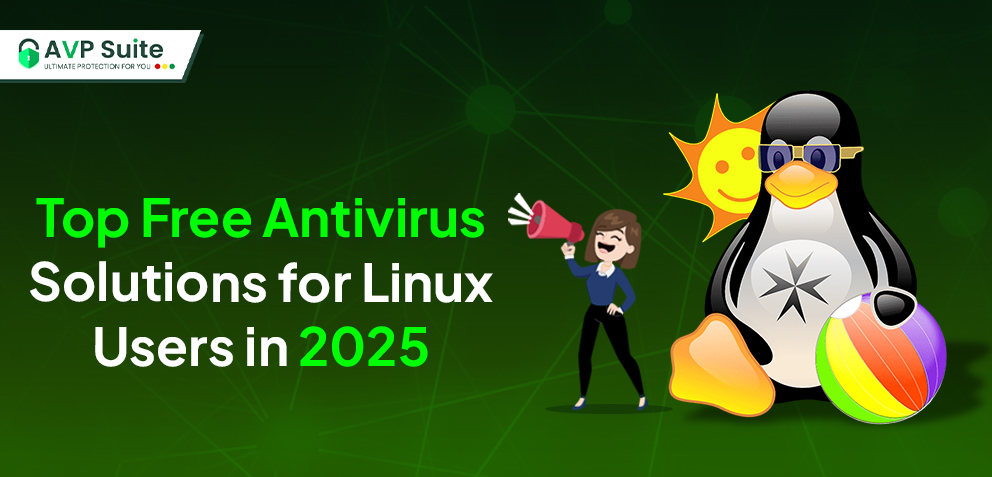Top Free Antivirus Solutions for Linux Users in 2025


The extent of usage of Linux on personal desktops and enterprise servers has noticeably skyrocketed over the last few years. This increases the burden on security measures, which need to be put in place. One of the largest misconceptions surrounding Linux is that users can ignore threats from malware. While it is true that Linux receives significantly less attention than Windows, it is not completely immune to threats. A recent report by AV-TEST in 2023 found that the number of malware samples targeting Linux rose by 35% from the previous year. Such an increase emphasizes how important it is to utilize proper cybersecurity tools.
It does not matter if you are a professional working as a system admin or just a novice Linux desktop user in the US; knowing the right free antiviruses for Linux is essential for preserving system integrity.
An updated community and strong permission structure in place mean that Linux has a favorable reputation concerning security. Nevertheless, no operating system can be considered bulletproof. Contemporary malware avoidance techniques make use of system defects, misconfigurations, and even users themselves. This elevates alarm in the case where Linux machines cooperatively function with Windows or Mac units, where they serve as unit mail or file servers. Scary still is the fact that TechRadar finds that more than 7 out of 10 businesses worldwide were hit by ransomware in 2024. Cross-platform OS environments rely on controlled Linux endpoint security. In addition, the emergence of more sophisticated threats, such as rootkits, cryptojackers, and ransomware targeting Linux servers, requires proactive action. Free antivirus services pose a significant challenge because they enable users to scan, detect, and eliminate potential threats before they fully manifest.
Stay One Step Ahead of Cybercriminals—Start Dark Web Monitoring with AVP Suite!
Try AVP Suite for Free
As highlighted below, free antivirus for Linux has been evaluated on detection and usability metrics alongside distinct features. Each solution is selected based on independent community testing, reviews, and expert opinions by Safety Detectives.
Currently, ClamAV lacks a native real-time scanning feature, making it more suitable for on-demand scans or scheduled scan routines.
System administrators, users of mail servers, and command-line interfaces.
Open-source platforms benefit from enterprise protection; with a free version, Sophos launched for Linux.
Built-in basic functions are free. Registration or a paid license is necessary to access advanced settings.
OS-agnostic users, businesses, and users who want easy deployment and straightforward runtime shielding.
Overview:
Comodo offers a user-friendly GUI alongside impressive malware detection rates on Linux systems.
Community support is less active, and some users are experiencing compatibility problems with recent Linux distributions.
Users who prefer a graphical interface on desktop systems, as well as current Comodo users on Windows, are included.
Not completely free, but ESET does offer a generous trial that outpaces many competitors.
There is a 30-day trial period, after which obtaining a license becomes mandatory.
They are testing users who wish to assess advanced protection before committing financially.
Tool |
Real-Time Scan |
GUI |
CLI |
Support Best For |
| ClamAV | ❌ | ❌ | ✅ | Email servers, CLI users |
| Sophos | ✅ | ❌ | ✅ | Home + business use |
| ESET (Trial) | ✅ | ✅ | ✅ | Short-term protection |
By 2025, Linux users can no longer afford to skip antivirus tools. Be it personal data or secret corporate-level servers, the required free antivirus can secure your system without sacrificing speed. For a complete comparison including the best-paid free antivirus for Linux options, check out AVP Suite’s comprehensive antivirus guide.